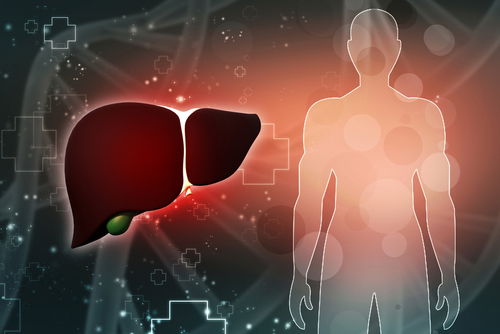PV-1 Gene Impacts Lipid Metabolism

Scientists at the University of Southern Denmark made a groundbreaking discovery that could revolutionize weight-loss strategies by focusing on the liver’s metabolic functions. Their research highlights a gene known as plasmalemma vesicle-associated protein (PLVAP or PV-1) gene, which plays a critical role in regulating energy usage during fasting.
Normally, when food intake is significantly reduced, the liver shifts from burning carbohydrates to oxidizing fatty acids for energy. However, in a study where researchers deactivated the PLVAP gene in mice, this metabolic switch was disrupted. The mice’s livers continued burning carbohydrates and redirected fat to the muscles rather than processing fatty acids in the liver.
The Danish discovery could be especially significant for addressing weight-loss plateaus that hinder many individuals on their health journeys. By “tricking” the liver into staying in a carbohydrate-burning state even during calorie deficits, future treatments could sustain a faster metabolism, optimize fat distribution, and enhance the effectiveness of modern weight-loss medications like prescription weight loss medications.
NOTE: The University of Southern Denmark’s PV-1 study on metabolism was initially published in the journal Cell Metabolism. The team of research scientists included Daniel Hansen, Jasmin Jensen, Christian Andersen, Peter Jakobsgaard, Jesper Havelund, Line Lauritsen, Samuel Mandacaru, Majken Siersbæk, Oliver Shackleton, Jonathan Brewer, Blagoy Blagoev, Nils Færgeman, and Kim Ravnskjær (all from SDU). Collaborators from Japan, the USA, and Finland. Danish scientists suggest that targeting the PLVAP gene could be key to overcoming common barriers by offering new hope for those with significant weight-loss goals.
How Cells Trigger Metabolic Changes
The innovative findings hold immense promise for those struggling with traditional methods of weight loss and could mark the beginning of a profound change in tackling obesity or overweight conditions with certain weight-related medical conditions. Researchers are now encouraging scientists to explore how these insights might lead to therapies that help overweight people overcome metabolic slowdowns to ensure sustainable, long-term weight management.
When the PLVAP gene was deactivated in lab mice, their livers were no longer able to shift from burning sugar to oxidizing fat during fasting. Instead, fatty acids were redirected to skeletal muscles, bypassing the liver altogether. Surprisingly, this metabolic shift resulted in improved insulin sensitivity and better blood sugar regulation, with no negative effects observed. While no medication is a replacement for a healthy lifestyle, they can be a helpful tool for managing obesity.
These latest SDU findings also suggest that targeting the PLVAP gene could complement the use of prescriptive medications by preventing metabolic slowdowns and extending the person’s weight-reduction progress. Such an approach could help overcome metabolic challenges like weight-loss plateaus while paving the way for new treatments for obesity, diabetes, and other dangerous metabolic health conditions.
Kickstart Your Journey for Weight Control
There are several factors that contribute to weight-loss plateaus. One of the main reasons is that our bodies are designed to adapt to changes in calorie intake. When we reduce our calorie intake for an extended period, our body's metabolism adjusts accordingly and becomes more efficient at utilizing energy during fasting. This decrease in energy source expenditure, making it harder to lose weight due to the liver switching from sugar burning to fat oxidation, which also can cause a loss of calorie-burning muscle mass.
Prescription weight loss medications work by mimicking the glucagon-like peptide-1 hormone, naturally produced in the gastrointestinal tract, to help regulate hunger and digestion. Incretin mimetics naturally reduce feelings of hunger by slowing the movement of food from the stomach to the small intestine and promoting fullness, which can lead to lower overall food intake and fewer instances of snacking between meals. However, patients often encounter weight-loss plateaus as metabolism slows during prolonged periods of calorie restriction.
Metabolic Research Center has been helping individuals lose weight for over 35 years with a personalized approach to following science-backed programs to lose weight and prevent unwanted weight regain. Visit us at the medical weight loss clinic Lincoln to see how our experienced team can help you succeed. All it takes is a quick email or call to learn more about MRC’s personalized approach to losing weight and restoring your metabolic health. Don’t forget to schedule a free consultation as your first step toward wellness.
By submitting this form, you agree to receive marketing text messages from us at the number provided, including messages sent by autodialer. Consent is not a condition of any purchase. Message and data rates may apply. Message frequency varies. Reply HELP for help or STOP to cancel. View our Privacy Policy and Terms of Service.

